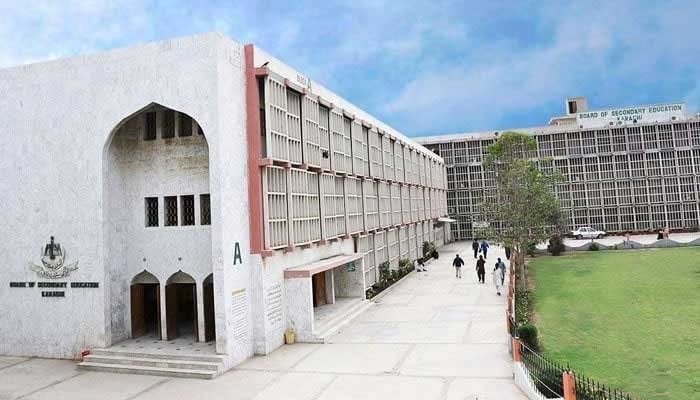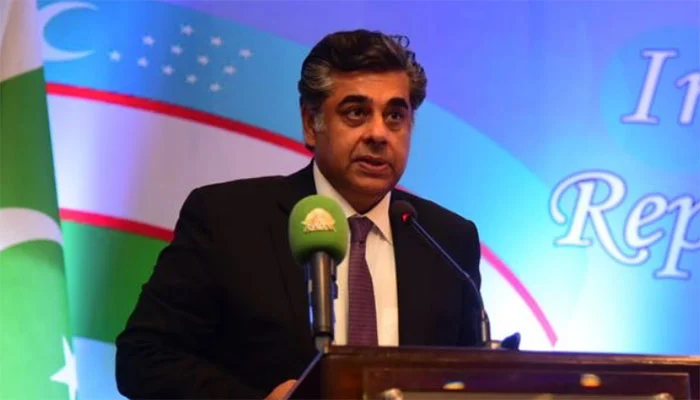The BSEK harassment inquiry against former acting secretary Dr. Naveed Ahmed has sparked widespread concern over workplace safety and institutional accountability within Karachi’s education sector. As part of the BSEK harassment inquiry, multiple female employees have come forward with written complaints, backed by audio recordings and transcripts, accusing Dr. Ahmed of coercive advances, unwelcome remarks, and misuse of authority. In response, the Board of Secondary Education Karachi has launched a formal investigation under the Protection Against Harassment of Women at Workplace Act, 2010 (amended 2022), marking a critical moment for workplace justice and transparency in public institutions.
Background to the BSEK Harassment Inquiry
Chairman Ghulam Hussain Sohoo issued the inquiry order, citing violations not only of the 2010 Act but also Article 14 of the Constitution (which guarantees dignity) and relevant Sindh civil-servant regulations. The inquiry panel includes Acting Controller of Examinations Hamza Khan Taggar as inquiry officer alongside a female principal from a higher secondary school. Their mandate is to determine whether Dr. Ahmed’s conduct amounted to legally actionable harassment, psychological intimidation or breach of discipline.
The complaints allege that some female staff faced repeated verbal improprieties, unsolicited advances, abusive language, and pressure to tolerate inappropriate behavior — actions that created a disruptive and hostile work environment. The inquiry is already underway, and the committee will compile findings for submission to the chairman.
Legal Framework: Protection Against Harassment Act & Recent Reforms
The Protection Against Harassment of Women at Workplace Act, 2010 was Pakistan’s first federal law to address workplace sexual harassment. It defined harassment as unwelcome sexual advances, requests for favors, verbal or written communication or physical conduct of a sexual nature that disrupts a safe work environment.
In 2022, the law was amended to broaden both the definition of “workplace” and the concept of “harassment.” The amendment now covers informal, remote and gig-based work settings, includes gender-based discrimination even when not overtly sexual, and extends protections beyond strictly contractual employees. Previously, courts had interpreted the Act narrowly, requiring that conduct must show sexual intent to be actionable. The amendment aimed to close many of those legal loopholes.
Despite these reforms, implementation challenges remain weak enforcement, power imbalances, and cultural stigma against reporting.
The Prevalence of Harassment in Pakistan’s Workplace
The BSEK case underscores wider systemic problems. According to the Federal Ombudsman Secretariat for Protection Against Harassment (FOSPAH), from 2018 to 2022, there were 2,169 complaints in the government sector (582 by women, 148 by men) and 1,439 in the private sector (994 by women, 445 by men). Surveys suggest that as many as 93% of working women in Pakistan report facing harassment in public or private workplaces. An empirical study shows that reported harassment cases have increased by about 20% in the past five years.
In the public sector, many women endure harassment silently due to fear of retaliation, loss of job security, or lack of trust in complaint mechanisms. In many institutions, internal complaint committees exist only on paper or are under-resourced, weakening their effectiveness.
Why the BSEK Harassment Inquiry Matters
This case is important for several reasons:
- It sends a strong signal that allegations of harassment will not be ignored, even when the accused holds senior office.
- It tests whether institutional mechanisms can fairly and transparently adjudicate serious workplace misconduct.
- It can strengthen trust among female employees and encourage others to report misconduct without fear.
- It may set a precedent in the education sector, prompting other institutions to review their own internal compliance with harassment laws.
If the inquiry finds Dr. Ahmed liable, disciplinary actions may include dismissal, suspension, or other sanctions under civil-servant rules. Also, findings may inform future policy on internal complaint committees and safety protocols across provincial institutions.
Challenges and Recommendations for Effective Inquiry
To ensure that the BSEK harassment inquiry is credible and effective, a few safeguards are vital:
- Transparency and Accountability
Publish clear protocols and timelines. Keep complainants informed of progress (while respecting confidentiality). - Protection against Retaliation
Assure complainants and witnesses that they won’t lose jobs or face reprisals for participating. - Evidence Handling and Forensic Integrity
Scrutinize submitted audio and transcript evidence impartially, possibly involving forensic experts if required. - Gender-Sensitive Approach
Ensure women investigators or psychologically trained personnel are part of the process. Sensitize all members to power dynamics and trauma-informed interviewing. - Appeals and Oversight Structure
Complainants should have right to challenge findings or request external review. Oversight by an independent ombudsperson or higher authority helps bolster credibility. - Institutional Reform
Adopt and enforce a clear code of conduct, regular training, functional internal complaint committee (ICC), and periodic audits of workplace safety climate.
The BSEK harassment inquiry into allegations against Dr. Naveed Ahmed is a litmus test of Karachi’s provincial oversight and institutional commitment to safe workplaces. It reflects broader structural challenges in enforcing protection against harassment across Pakistan. As the committee investigates, all eyes will be on whether justice is delivered fairly, whether structural changes follow, and whether the inquiry strengthens the rights of all employees — especially women — to a workplace of dignity, respect, and safety.



